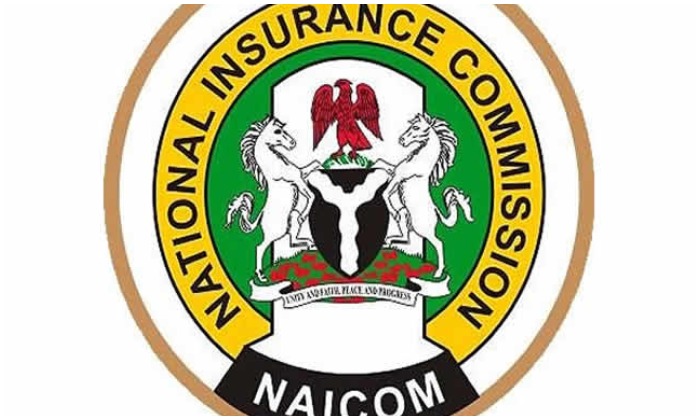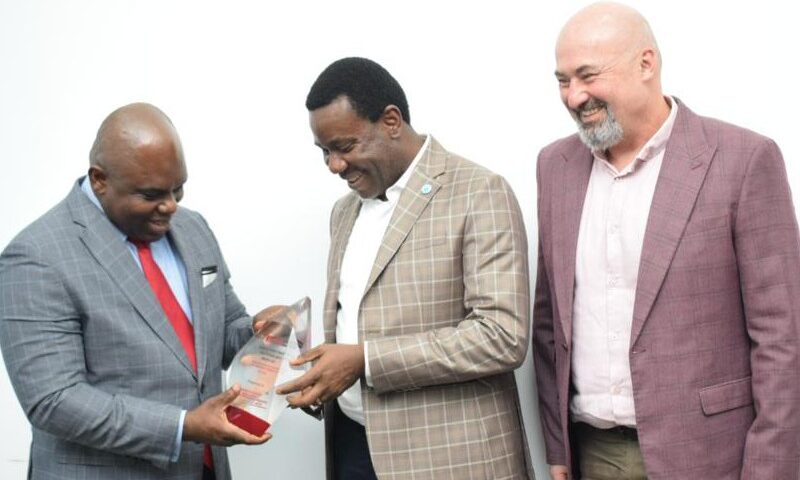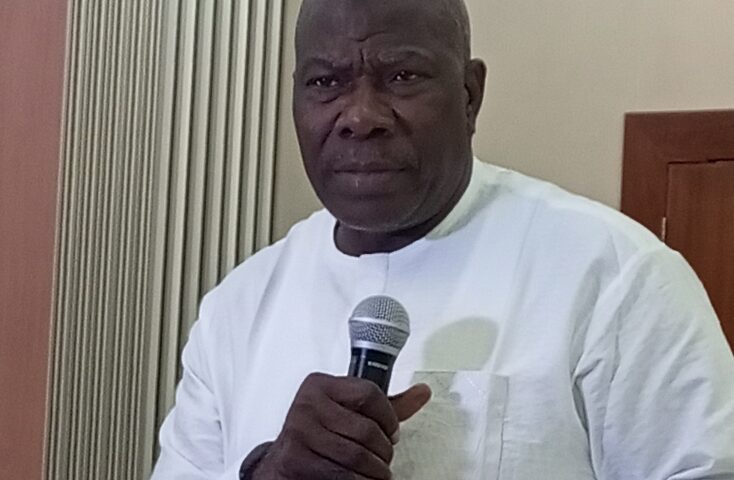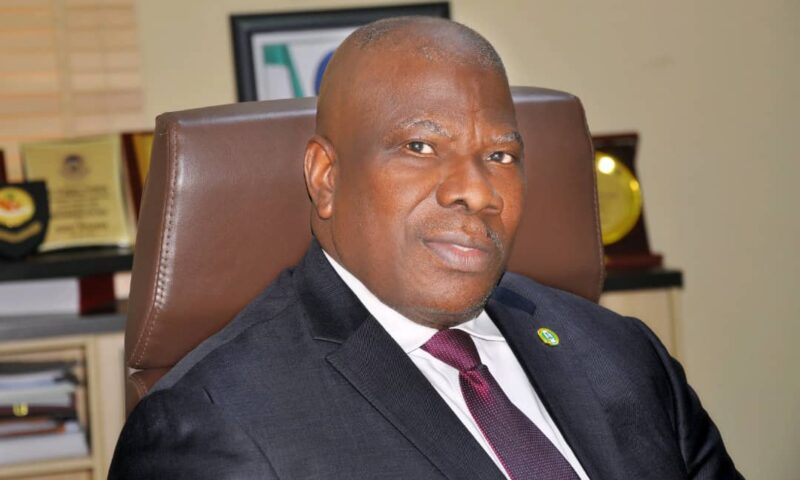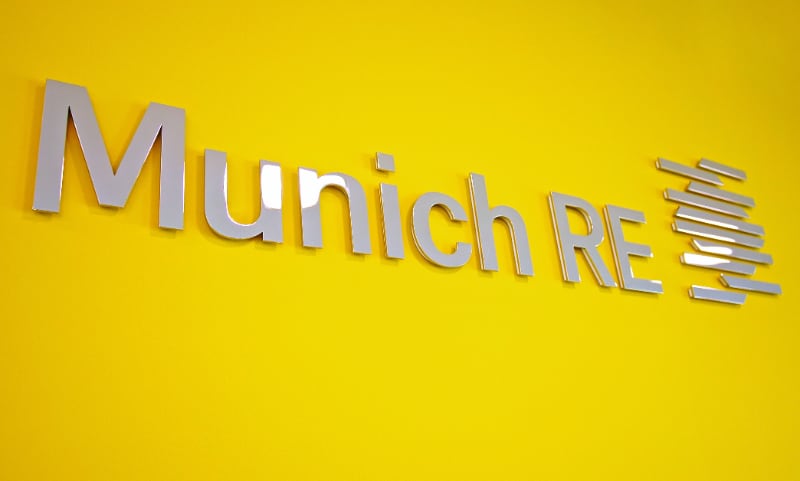All Posts in "Month: November 2022"
Sanlam Life Nigeria wins BAFI Awards 2022 Life Insurance Company of the Year
CAPTION:
L- Dr Ogho Okiti, MD/CEO, Business Day Media; Mr Tunde Mimiko, MD/CEO and Thomas Meisinger, Chief Operating Officer, Sanlam Life Nigeria during the awards presentation at the Sanlam Head Office in Lagos.
By Favour Nnabugwu
Sanlam Life Insurance Nigeria Limited, formerly FBNInsurance, won the Business Day Bank and Other Financial Institutions (BAFI) Life Insurance Company of the Year.
The announcement was made at a high-profile ceremony held recently inLagos.Awarded annually and backed by the highly rated Business Day’s Research and Intelligence Unit, the BAFI Awards seeks to identify and celebrate financial institutions snd their leadership that have excelled across a number of areas.
These include financial performance, shareholder value creation, brand value accretion, corporate governance, sustainability, employment of new technologies, compliance to standards,innovations, and contribution to the industry’s overall growth.
During the award presentation at Sanlam Life’s Head Office in Marina, Lagos, the Managing Director/Chief Executive Officer, Business Day Media, Dr Ogho Okiti,congratulated the management of the Life Insurer on the win while also acknowledging the massive impact Sanlam has made on the continent and in the country.
While accepting the award on behalf of the company, the Managing Director/Chief Executive Officer, Sanlam Life Insurance, Mr Tunde Mimiko, thanked the organizers forthe recognition. “At Sanlam Nigeria, we remain committed to providing exceptional service and adding value to our customers. Our mandate is to continue to deliver efficient and customer friendly insurance services that help our teeming policyholders live with confidence,” he said.
Speaking further, Mimiko said “we are delighted to be honoured with this award, it further confirms our growing leadership status in the industry. We are not slowing down now, indeed, we will take this as another impetus to continuously add superior value and ensure the very best of our policyholders
.”Sanlam is a pan-African brand with a rich history and heritage. Founded in 1918 as a life insurance company, Sanlam has grown to become the largest non-banking financial services group in Africa.
With a strong presence in 33 countries on the African continent, and a niche presence in India, Malaysia, the United Kingdom and Australia, Sanlam is in 8 out of the 10 largest economies in Africa, with a market capitalization of over $8bn, operating profit of $1b before tax and over 154,000 employees globally,delivering superior value to customers, shareholders and the broader society.
Katsina, Kano embrace Takaful insurance, Edo enforces third party
CAPTION:
His Excellencies: Abdullahi Umar Ganduje, Kano State Governor; Godwin Nogheghase Obaseki, Edo State Governor and Aminu Bello Masar, Katsina State Governor
By Favour Nnabugwu
Two States have embraced insurance as part of the state budget for 2023 even as one other state enforced third party insurance in major routes of the state following National Insurance Commission, Naicom market development visits to states
The two state included insurance in their 2023 budget are Katsina and Kano whilst Edo State follow through with third party insurance
Deputy Director, Communication and Market Development, Mr AbdulRasaaq Salami made the disclosure at the recent seminar the Commission organised for insurance Correspondents in Lagos.
“Katsina and Kano have included insurance in their 2923 state budget. Edo State has began the third insurance in major routes of the state since November 1, 2022”
So, we want to spread insurance education all over the country. We visited Katsina twice. On our first visit, the Governor was sincere that he was hearing insurance takaful for the very first time.
On our second visit, we had a fuller engagement involving the grand khadi, emirs and all the rest of the influencers and we taught the gathering about takaful. They researched about it and showed them where the takaful was talked about in Quran.
According to him, “Insurance education remains a very critical issue, especially now that a lot of states, especially in the north, were outside the insurance net”
“We will visit all the states of the country because the insurance business is an integral part of the economy,” he noted.
During Naicom’s visit to Katsina, the Governor of Katsina State Aminu Bello Masari and his Deputy Mannir Yakubu inaugurated Technical Committee on the Sensitisation/Implementation of Compulsory Insurances and Takaful in the state.
The Governor, Aminu Masari while inaugurating the Technical Committee noted that the initiative to introduce Takaful insurance is a welcome development and will serve as an alternative especially to attract people of the state who are left out due to religious or cultural barriers.
He assured the insurance regulator of the Katsina State Government’s full support in the development of insurance in the State.
NAICOM determines to lift Insurance sector to global standard
By Favour Nnabugw
Undeterred by challenges upstructing smooth development of the insurance industry, the National Insurance Commission (NAICOM) is determined to take in the sector to a global standard.
The Commissioner for Insurance and Chief Executive Officer, National Insurance Commission (NAICOM), Olorundare Sunday Thomas, made the disclosure during the seminar organised by the Commission for insurance journalists at the weekend in Lagos with the theme “The Future of the Nigerian Insurance Sector in a Shifting Landscape.”
The Commissioner said they will do this through continued mutual collaboration with the media and other relevant stakeholders.
“As regulators, we would continue to consolidate on the administration’s cardinal agenda of developing the market and fostering insurance inclusion along with mutual collaboration of the press and other relevant stakeholders.”
Thomas said the Commission will continue its execution of various regulatory and market development initiatives to uplift the insurance sector to a global standard.
“This will be achieved through a 12-point laid down initiatives that will focus on engaging stakeholders including state governments towards ensuring domestication of the laws to ensure compliance with compulsory insurances and improve the business of insurance in their respective states; driving the Market Development and Restructuring Initiative (MDRI) to promote compulsory insurance products; feasibility Assessment for Index Based Risk Transfer Solution in the agricultural sector; financial Inclusion Drive via focused Insurance awareness campaign for the financially excluded.
“Other areas are launch of the Insurtech Accelerator Platforms under the Insurance Market Development programme i.e Bimalab Programme in conjunction with FSD Africa; ongoing synergy with FSD Africa on developing a Risk Based Capital Model for the Nigerian Insurance Industry; promoting the development of products and business models that meet the needs of the financially excluded group; automation of the Commission’s processes; actuarial capacity development programme; risk based supervision regime; regional Integration and setting up of the insurance sector committee on African Continental Free Trade Area (AfCFTA) amongst others.
“Stemming from the theme for this seminar, it is worth noting that insurance over the ages has always been seen as a business that exists for the survival of other businesses.
“At this period of rejuvenation, it calls for the Nigerian insurance sector to develop innovative products and distribution channels, embark upon massive infrastructural development, improvement in social safety nets scheme, rejig business continuity plans and general deployment of technology to meet the expectation of today’s consumers and create new experiences that add value,” Thomas said.
On importance of insurance, NAICOM boss said “The insurance sector plays a vital role in financial inclusion because it reduces the poverty line, assist people to manage their risk and protect them from negative adverse effect of any unforeseeable circumstances as well as increases access to other financial services
“In today’s modern business environment, disruption plays an integral part of any business, hence innovation being implemented by the Commission is geared towards gaining control of a specific segment of the market that have been left untapped by encouraging the introduction of products tailored to the consumers in order to grow insurance businesses.”
Insurance gap: why most floods not covered by insurance
By Favour Nnabugwu
Africa marks special day at COP27 with a resolve to tackle climate change relentlessly
By admin
African nations on Tuesday marked a special day on the sidelines of the 27th United Nations Climate Conference (COP27) in Egypt, with a common resolve to mobilize internal and external resources to tackle climate change.
The event, dubbed ‘Africa Day,’ provided countries and development partners, including the African Development Bank, the opportunity to highlight measures to tap the continent’s unique economic potential.
The African Union Commission, African Development Bank, the United Nations Economic Commission for Africa, and the New Economic Partnership for Africa (NEPAD) Planning and Coordinating Agency organized the event. Hundreds of youths from across the continent seized the chance to urge the world’s industrialized nations to deliver on their climate finance pledges and other commitments to Africa without further delay.
In his opening remarks, African Union Commission chairperson Moussa Faki Mahamat said the challenges facing Africa in the wake of the Covid-19 pandemic and the Russia-Ukraine war had become enormous, and had taken a toll on government budgets.
years. This is to prepare the continent for the consequences of climate change faster and at scale.
COP27, commonly referred to as “the African COP,” allows Africa to spotlight its special needs, circumstances and opportunities.
COP27 is expected to deliver action on an array of issues critical to tackling the climate emergency – from urgently reducing greenhouse gas emissions, building resilience and adapting to the inevitable impacts of climate change, to delivering on the commitments to finance climate action in developing countries.
Africa Alliance wins Claims Excellent Insurance Company of the Year Award from BAFI
NAIA Cargo terminal to be Commioner soon by President Muhammadu Buhari
By Favour Nnabugwu
Minister of Aviation, Hadi Sirika has said that the cargo terminal project at the Nnamdi Azikiwe International Airport, NAIA, Abuja will be commissioned soon.
The cargo terminal that will be commission by President Muhammadu Buhari reiterated that the national carrier will take off before the end of the year with boeing 737 series airplanes.
Sirika stated while responding to questions from lawmakers during his defence or 2023 budget at the House of Representatives on Tuesday.
He said: “There are two cargo projects in Abuja. One has been completely finished and will be commissioned by His Excellency Mr. President soon. The second one, the contract was given in 2012, the contractors were advanced money up to about 75%.
“These contracts were abandoned by the contractors. Mr. President directed that they be investigated, prosecuted and the monies recovered but because we don’t have prosecuting powers, we reported to EFCC.
“Now in the last three and half years, they confirmed to me that they have finished the investigation. This is worrisome. We will inform the the House when we see EFCC and they brief us formally.
“The aviation ministry has recorded some significant achievements in virtually all areas of the sector within the life of this administration of President Muhammadu Buhari.
“We have provided the safety and security needed in the aviation sector, which has led to the certification for the first time ever in the history of the country of Murtala Mohamed Airport, Nnamdi Azikiwe International airport.
“It is a milestone being the first ever airports to be certified, government in, government out. This testimony as to our concern to our focus on safety. We have recorded the highest level of safety and unprecedented growth, making aviation the fastest growing sector of the Nigerian economy.
“Today, Nigeria is the 7th highest country in recovery from COVID. Some airlines also received interventions to be saved from total collapse. We also created an enabling environment, which provided airlines in the country to attain certification and international air transport association operational safety audit. Our airports are wearing new and befitting looks.”
In his remarks, earlier, the chairman of the House Committee, Hon. Nnolim Nnaji expressed concern over the omission of the 2023 budget of the Nigerian Airspace Management Agency (NAMA) by the government, promising to address the matter.
“You would recall that the committee spend most of last week visiting some projects executed by the ministry and some of its agencies within the FCT. Within the next few weeks, the committee will be embarking on similar tours to most importantly but not limited to the other three International Airports Terminals slated for concession.
“The Committee has noticed with great concern the omission of one of the critical Security and Safety Agency of the Ministry, the Nigerian Airspace Management Agency (NAMA) from the 2023 FGN budget.
“This Committee and its Senate counterpart is committed to ensuring that the abnormality is corrected. However, as the minister superintending the ministry, we request that you make the clarification on the matter,” Nnaji said.
Munich Re posts €527 m profits in Q3 2022
By Admin
Global reinsurer Munich Re has reported profit of €527 million and €1.9 billion for the third quarter of 2022, respectively, despite a rise in major losses within property and casualty (P&C) reinsurance on the back of Hurricane Ian losses of around €1.6 billion.
Profit for the quarter increased year-on-year, although declined slightly for 9M 2022 as the reinsurer notes above-average expenditure for natural catastrophes.
In fact, major losses of more than €10 million each reached over €2.6 billion in Q3 2022, corresponding to 26.9% of net earned premiums, and higher than the long-term average expected value of 13% for both Q3 and 9M 2022.
The costliest nat cat event for the reinsurer was Hurricane Ian at €1.6 billion. All in all, nat cats cost the reinsurer €1.8 billion in Q3 2022, compared with €1.7 billion in Q3 2021.
At the same time, Munich Re booked man-made losses of €489 million in the period, compared with €245 million a year earlier.
contributed €81 million to the overall result for the third quarter, and €1.2 billion for the first nine months of the year. Munich Re attributes the quarter-over-quarter decline to the cost of Hurricane Ian and also a lower investment result.
Within reinsurance, the operating result came in negative for the quarter at -€687 million, while gross written premiums jumped significantly, year-on-year, to €13.7 billion.
Turning to the ERGO business, and profit reached €446 million for the quarter and €702 million for 9M 2022, which is up significantly for both periods, driven by a one-off effect in the ERGO Life and Health Germany segment. In the third quarter, all segments continued to see premium growth, with total premium income rising to €4.7 billion in Q3, and gross written premiums rising to €4.5 billion.
All in all, Munich Re has announced an operating loss of €346 million for the third quarter, compared with a gain of €204 million a year earlier. The other non-operating result was also negative at -€5 million, while the currency result increased significantly to €846 million, in part as a result of exchange gains on account of the US dollar.
Across the group, gross written premiums increased substantially to more than €18.2 billion for the third quarter, and jumped by 14% to more than €50.9 billion in 9M 2022.
On the asset side of the balance sheet, Munich Re has reported that its investment result dropped from more than €2 billion in Q3 2021 to €904 million in Q3 2022. Overall, the third quarter investment result represented a return of 1.6% on the average market value of portfolio.
Looking ahead, Munich Re says that in light of the “very positive” business performance so far in 2022, it has raised its guidance for gross written premiums in reinsurance to €48 billion from the previous €45 billion, and in ERGO to €19 billion from the previous €18.5 billion. Across the group, the target has increased from €64 billion to €67 billion.
Additionally, the reinsurer is still targeting a consolidated result of €3.3 billion for the 2022 full year, but warns that this will be a lot harder to achieve given the claims experience and business environment. The firm anticipates a consolidated result of €2.5 billion in reinsurance for the year, which is down on the previous target of €2.7 billion. However, at ERGO, the company expects a consolidated result of €800 million for the year, which is up on the previous €600 million target.
In P&C reinsurance, Munich Re now expects to produce a combined ratio of roughly 97% of net earned premiums for the full-year, compared with a previous target of 94%.
In L&H reinsurance, the firm says that it now anticipates a much higher technical result of €800 million for 2022.
Chief Financial Officer (CFO), Christoph Jurecka, commented: “Financial solidity and professional expertise are of fundamental importance to our clients in times of crisis and guide Munich Re in its actions. Hurricane Ian matches the pattern science would expect of a warming world. Therefore the rising probability of such extreme storms is part and parcel of our models and must be reflected in pricing.
“The sustainable and reliable offering our clients expect of us is based on realistic analyses, not only of natural catastrophe risks, but also of cyber and pandemic risks. And although Hurricane Ian and the macroeconomic environment are making it significantly more challenging for us, we are firmly adhering to our annual guidance of €3.3bn. All fields of business are contributing to sustainably positive performance.”
UK warn citizens against traveling to 22 States in Nigeria
By Favour Nnabugwu
The United Kingdom has issued a warning to its citizens to avoid traveling to 22 states in Nigeria.
Meanwhile, the European country cleared Abuja from the list but still asked its citizens to apply caution as this may still be connected to the country’s security situation.
This was contained in a press release by the British High Commission, Abuja, on Monday titled, “Updated Foreign Commonwealth Development Office Travel Advice to British Nationals Traveling to the FCT.”
The British High commission noted that the travel advisory is to help its nationals to make better-informed decisions about international and business travel plan without any danger.
According to the statement many of the states are in the northern parts, while some are in the South.
The statement read, “FCDO travel advice exists to inform British nationals so they can make decisions about travelling abroad. There continues to be a number of states in Nigeria where we advise British Nationals against all but essential travel. These include: Bauchi, Kano, Jigawa, Niger, Sokoto, Kogi, Abia, Plateau, Taraba, within 20km of the border with Niger in Kebbi State and non-riverine areas of Delta, Bayelsa and Rivers States.
The UK keeps its travel advice under regular review and in making these assessments, and uses information from a wide range of sources. The travel advice is constantly reviewed to make sure it reflects the current situation in Abuja and Nigeria. Although, the FCDO Travel Advice no longer advises against all but essential travel to the Federal Capital Territory, including the city of Abuja, it makes clear that some risks remain.

